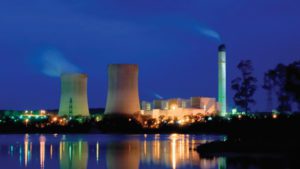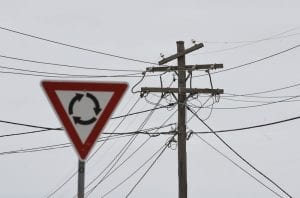
The International Energy Agency (IEA) has released a new report on global investment in energy efficiency, which found that investment in energy efficiency is huge and growing rapidly, but needs to be ramped up even more to avoid dangerous climate change.
The IEA’s Energy Efficiency Market Report 2016 was released in Paris on Monday. The report found that global investment in energy efficiency in 2015 was a staggering $290 billion and is growing at a remarkable rate, increasing 6 per cent in just one year. This is not only a huge business opportunity – it’s also critical to tackling climate change.
The IEA is the world’s most senior advisory body on energy, producing reports on oil, gas, coal, renewables and energy efficiency. It was set up in 1974 in the wake of the Oil Crisis, and historically had a strong focus on energy security and fossil fuels. However, over the last two decades the IEA has increasingly focused on climate change, renewable generation and energy efficiency.
The importance of energy efficiency for tackling climate change is frequently overlooked, but it’s a critical part of a strategy that combines renewables and carbon pricing. In fact, Fatih Birol, the Executive Director of the IEA, states that the IEA believes that energy efficiency is the “single largest action” to help decarbonise the global energy supply.
The good news is that the ramp up in investment in energy efficiency is having a real impact. Global energy productivity (units of energy per unit of GDP) improved by 1.8 per cent in 2015, which is triple the annual rate of 0.6 per cent in the 2000s. However, this is still well short of the 2.6 per cent rate of annual improvement that the IEA believes would be required to deliver on the world’s climate goals.
The Energy Efficiency Market Report 2016 also found that in 2015 improvements in energy efficiency met more of the world’s energy needs than new generation. Even more significantly, global investment in energy efficiency was 66 per cent higher than global investment in conventional generation.
The report finds that energy efficiency is an enormous business opportunity. China alone invested $485 billion in energy efficiency between 2006 and 2014, delivering as much ‘energy’ as China’s investment in renewable energy. China is also the largest global market for specialist ‘energy service companies’, which have seen rapid growth in the last decade.
While energy efficiency makes good business sense, distortions in markets for energy, buildings and appliances prevent us from tapping its full potential. The IEA has concluded that mandatory energy efficiency programs, including standards for buildings, vehicles and appliances, were critically important to capture this opportunity. While governments have taken significant action, there is much more still to do.
Following the release of the report the Energy Efficiency Council spoke briefly to Brian Motherway, the IEA’s Head of Energy Efficiency and former CEO of Ireland’s Sustainable Energy Authority. Brian Motherway will be in Sydney on 15-16 November 2016 for the National Energy Efficiency Conference.
“Our 2016 Energy Efficiency Market Report demonstrates that businesses and governments around the world understand the critical role energy efficiency will play in the transition to a low carbon economy,” said Brian Motherway.
“Not only that, they and are acting on that knowledge, and pursuing cost effective energy efficiency that has benefits well beyond savings on energy bills in terms of comfort, health and productivity.”
“This opens up significant opportunities for Australia to tap into the rapidly growing export market for energy efficient products and services, particularly in the Asia Pacific region. I’m looking forward to discussing these opportunities at the National Energy Efficiency Conference in November.”
The Australian Government has set a target to improve national energy productivity by 40 per cent by 2030. If we meet this target it will deliver substantial reductions in Australia’s emissions, smooth the transition to renewable energy and deliver economic growth. As noted by the IEA, the challenge is to introduce the strong policies that will allow Australia to capture this opportunity.
Rob Murray-Leach is Head of Policy, Energy Efficiency Council
The Australian Energy Efficiency Policy Handbook is at the EEC website: www.eec.org.au/handbook
About the Energy Efficiency Council (EEC)
The Energy Efficiency Council is Australia’s peak body for energy efficiency, cogeneration and demand management. Formed in 2009, the Council is a not-for-profit membership association which exists to make sensible, cost effective energy efficiency measures standard practice across the Australian economy. We work on behalf of our members to promote stable government policy, provide clear information to energy users and drive the quality of energy efficiency products and services. www.eec.org.au








